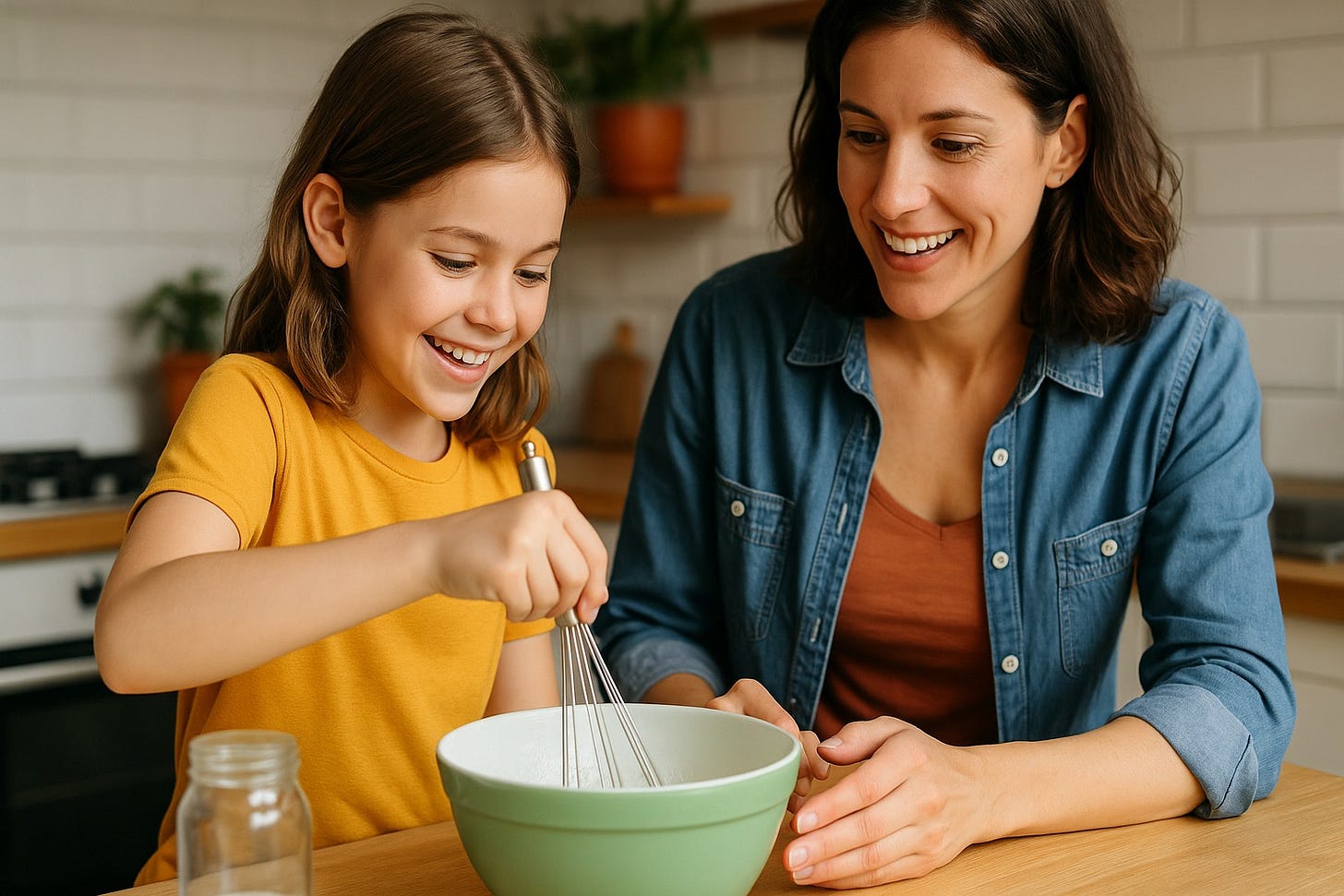Let Them Live: Why Freedom, Not Fear, Builds Stronger Kids
How trust, independence, and soul-centered parenting create resilient children in an age of fear.
Let Them Live: Why Freedom, Not Fear, Builds Stronger Kids
Children grow best when they’re allowed to stretch beyond our reach. Yet modern parenting, fueled by fear and amplified by screens, has turned freedom into a luxury. The irony is sharp. the world has never been more connected, yet our trust in it has never been smaller.
The “helicopter parent,” once a caricature, is now a cultural norm. The University of Mary Washington found that college students with helicopter parents reported higher anxiety and lower self-efficacy — the belief that one can handle life’s challenges without constant intervention. Another study from the American Psychological Association linked this over management to reduced problem-solving skills and emotional resilience. In other words, every time we rush to rescue, we steal the small struggles that teach strength.
What’s quietly at stake here isn’t just independence — it’s the soul’s sense of agency. Freedom isn’t a reckless gamble; it’s a vote of confidence in a child’s ability to meet the world. Letting them walk to school, fall from a bike, or argue their way through friendship isn’t negligence — it’s nourishment. Each bruise, each triumph, builds the invisible scaffolding of self-belief.
Technology, for all its gifts, has supercharged our fears. A single viral story can make every parent feel the world is full of lurking danger. Media thrives on our protective instincts, blurring the line between prudence and paranoia. The result is a generation raised under constant observation — children who grow up fluent in caution but strangers to courage.
And here’s where soul enters the conversation. Life, at its healthiest, moves through trust. When we assume good in others — when we believe in safety before threat — we open a channel for joy and creativity. Neuroscience agrees: positive expectancy triggers dopamine pathways that increase motivation and social connection, shaping both mood and resilience. To trust first is to live as though the world will meet you halfway. That belief, in turn, tends to make it true.
The spiritual law mirrors the psychological one: the energy you send out returns. A family culture of fear manifests fear; one of faith manifests freedom. Children sense it instantly. If parents move through the world convinced that danger waits around every corner, kids internalize that script. But if they grow up in households where exploration is celebrated — where mistakes are lessons, not liabilities — they carry that confidence into every dimension of their future.
This article was inspired by Lenore Skenazy’s TED Talk on Free-Range Parenting and her ongoing work through FreeRangeKids and LetGrow. Her mission — helping parents rediscover trust, freedom, and community — embodies what modern childhood desperately needs: not more supervision, but more belief in children’s innate wisdom to navigate the world.
To let children live freely is not to abandon them. It’s to model trust — in themselves, in others, in the world’s essential goodness. It’s a radical act of optimism in a time of surveillance and suspicion. Freedom becomes the language through which the soul learns to speak.
Trust first, always. That’s how dreams start walking on their own.
How Parents Can Nurture Independence and Trust at Home
Let Them Try, and Sometimes Fail.
Give children real responsibilities, like cooking a simple meal, walking the dog, or managing a small budget. Resist the urge to correct immediately. Confidence grows from doing, not watching.Designate “Freedom Hours.”
Set aside unstructured time with no screens, no schedule, and no adult guidance. It could be an hour in the backyard or a walk to the park. Boredom is often the doorway to imagination.Model Trust Out Loud.
When your child takes a risk — social, creative, or physical — say, “I trust you to handle it.” That affirmation teaches them self-belief through your faith, not your fear.Talk About Media and Fear Honestly.
Discuss why scary news stories get shared and why the world isn’t as dangerous as headlines suggest. Teach critical thinking early; media literacy is emotional armor.Rebuild Community.
Reconnect with neighbors. Organize shared outdoor play. Familiarity breeds trust, and community is the antidote to fear. As Let Grow advocates, “Independence grows in safe, connected neighborhoods.”Practice “Trust First” Living.
With both kids and strangers, begin from a place of goodwill. Assume good intentions. Speak optimism. It trains the nervous system toward openness rather than anxiety — and children mirror what they feel around them.Celebrate Effort, Not Control.
Praise curiosity, persistence, and kindness — not perfection or obedience. This helps children find joy in growth rather than fear of failure.
Freedom isn’t the opposite of safety — it’s the root of real strength. When parents choose trust over fear, they don’t just raise capable kids; they raise confident, compassionate souls ready to meet the world without shrinking from it.
Author’s Note: On Trust, Manifestation, and the Soul of Parenting
At the heart of it all, I believe parenting is an act of faith. Not blind faith, but a deliberate trust in life’s rhythm — that things unfold as they should when love leads the way. The energy we project as parents, as people, becomes the environment our children grow within. When we live through suspicion and fear, we manifest walls. When we live through trust and joy, we manifest gardens.
Manifestation, in its truest form, begins in perception. If you see the world as dangerous, it reflects danger back to you. But if you teach your children to see it as an open, generous place — one that responds to kindness and courage — they grow into co-creators of that reality. Trust, then, isn’t naïve. It’s powerful. It’s the soul’s quiet way of saying: I believe in life, and I believe in you.
Letting go isn’t losing control—it’s creating space for magic to move.






